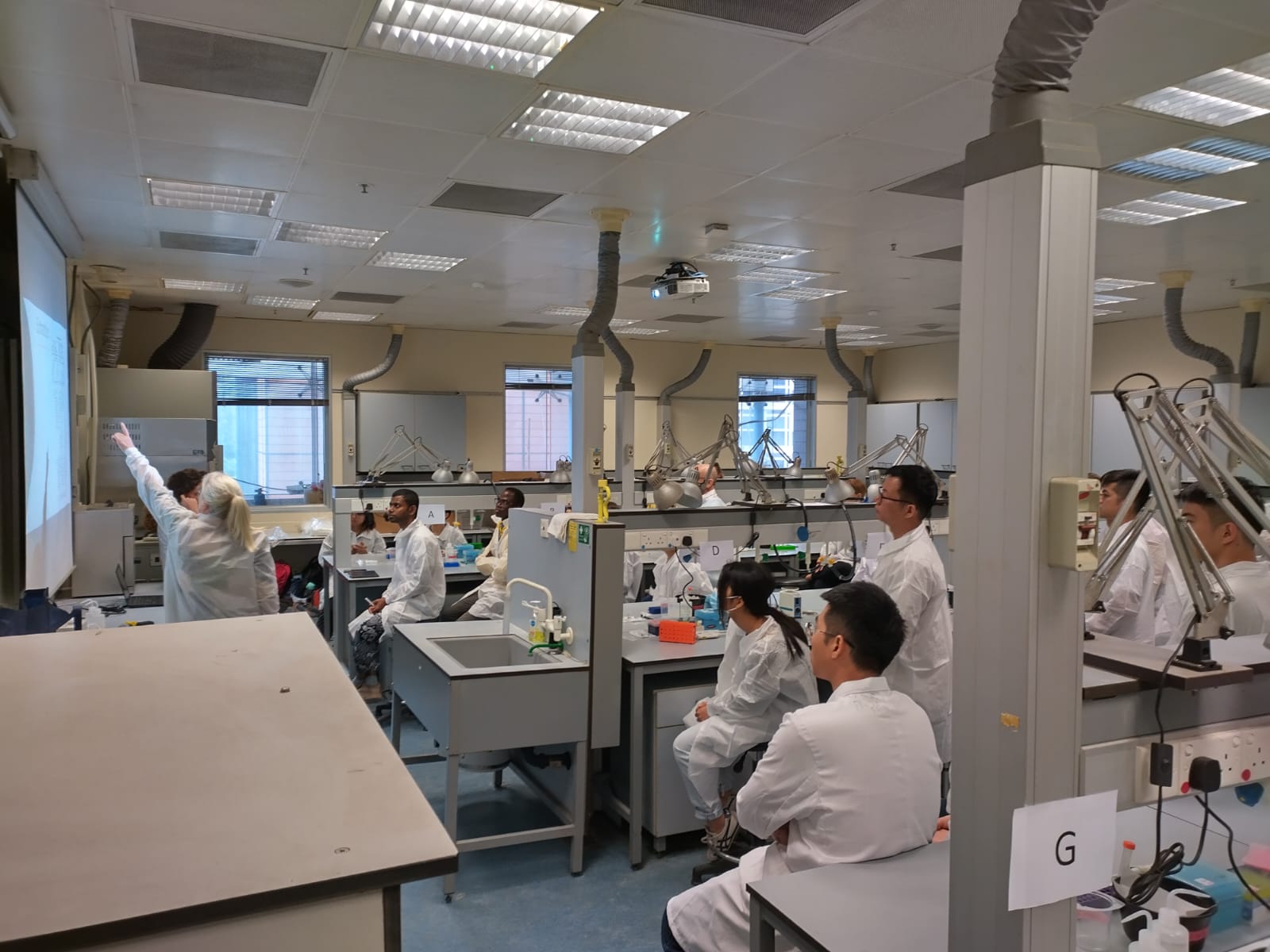HKU eDNA & eEcology Lab Initiated the First International eDNA Workshop in Hong Kong, Empowering Next-Generation eDNA Researchers
Environmental DNA (eDNA) is a crucial tool for assessing biological diversity and its role in conservation biology environmental assessment, and ecosystem management. Whereas the use of eDNA has become widespread globally, it is still in its infancy in Hong Kong. To facilitate the development of eDNA research in Hong Kong and neighboring systems, the eDNA and eEcology Laboratory at The University of Hong Kong (HKU) held the First International eDNA Workshop in Hong Kong in October 2023. This workshop, funded by the Croucher Foundation Limited (Hong Kong) and supported by the HKU School of Biological Sciences, provided new eDNA researchers with the opportunity to learn from international experts about designing, implementing, analyzing, and presenting eDNA-related research. To further help disseminate eDNA research capabilities, the researchers of the Lab summarized the workshop via a companion commentary, which was recently published in the journal Environmental DNA.
Effective ecosystems management is increasingly important for human society and environmental stability. Many ecosystem services we utilize, including access to freshwater, waste management, food availability and security, and natural recreation, require active biological monitoring to ensure human-caused activities do not threaten or harm their capabilities. While many traditional surveillance and assessment methods have been established for routine ecosystem monitoring, they require a wide variety of equipment, specialization and expertise, and are often time-consuming and costly. In contrast, eDNA, which is genetic material collected from environmental samples (e.g. soil, water, air), offers a non-invasive approach to identify species through genetic information that has been left behind through biological processes, such as shedding of skin, defecation, or during reproduction. These eDNA biological surveys have also been shown repeatedly to provide greater biological information using standardized sampling and molecular methods that are faster and more cost- effective compared to traditional sampling methods. While eDNA-based approaches have become widespread in many countries, including Mainland China, the adoption of eDNA in Hong Kong has largely lagged. Professor Mathew SEYMOUR of HKU School of Biological Sciences established the eDNA & eEcology Lab to tackle this knowledge gap within the local research community. The development and implementation of the First International eDNA Workshop in Hong Kong enabled the Lab to share its existing knowledge with local and international researchers, promoting and stimulating eDNA research interest and facilitating a more rapid advancement of the field locally.
The workshop, held in October 2023, was developed by members of the Lab, with support from a committee of local researchers interested in environmental research across the UGC-funded universities in Hong Kong. Instructors included several internally recognized eDNA researchers, including Dr Micaela Helstrom, Dr Mathieu Leray, Dr Vaco Elbrecht, Dr Isis Guibert and Dr Gert-Jan Jeunen. The primary objective of the workshop was to equip new researchers interested in incorporating eDNA into their research with the necessary tools and knowledge to do so.
The workshop spanned two weeks and started with a series of lectures on the background and fundamentals of eDNA. Participants were then taken to field sites in Sai Kung, where they engaged in hands-on learning experience on how to sample and process eDNA samples in the field. In the subsequent days, participants had practical laboratory sessions where they gained first-hand experience in extracting DNA from eDNA samples and setting up high-throughput sequencing metabarcoding libraries to generate biological community data.
The second week featured several guided tutorials on how to process high-throughput sequencing data, including bioinformatics training, taxonomic assignment and data analyses using R programming language. We also provided tutorials on figure generation and held discussions on ethical publication practices. Tutorials and scripts for interested individuals are provided via the published commentary as open-source data.
The workshop was a great success, attracting 30 participants from 8 countries. Most attendees consisted of early career academics, including PhD students, post-doctoral fellows and recently appointed assistant professors. Additionally, there were participants from non-profit organizations and industry users who were keen on incorporating eDNA into their business models. Participants were invited to provide feedback and share personal insights into the commentary, providing full details of their impressions and experiences of the workshop.
With the resounding success of the First International eDNA Workshop in Hong Kong, we are committed to continuing to offer biannual eDNA workshops with support from the School of Biological Sciences and HKU. Forthcoming workshops will include updated molecular methods to align with the rapidly changing field of eDNA and provide additional opportunities to take part in ongoing eDNA research within the Lab at HKU. Above all, the workshop highlights the importance of promoting knowledge exchange and boosting collaborative efforts, aligning with HKU’s underlying philosophy of research and the promotion of Hong Kong as a prominent hub for research and innovation.
Learn more about the eDNA and eEcology Laboratory: https://www.seymourlab.net
For further details about the commentary, please visit: https://onlinelibrary.wiley.com/doi/full/10.1002/edn3.552
For media enquiries, please contact Ms Casey To, Assistant Manager (Communications) (Tel: 3917 4948; email: caseyto@hku.hk/ Ms Cindy Chan, Assistant Director of Communications of HKU Faculty of Science (Tel: 39175286; email: cindycst@hku.hk).
Images download and captions: https://www.scifac.hku.hk/press




